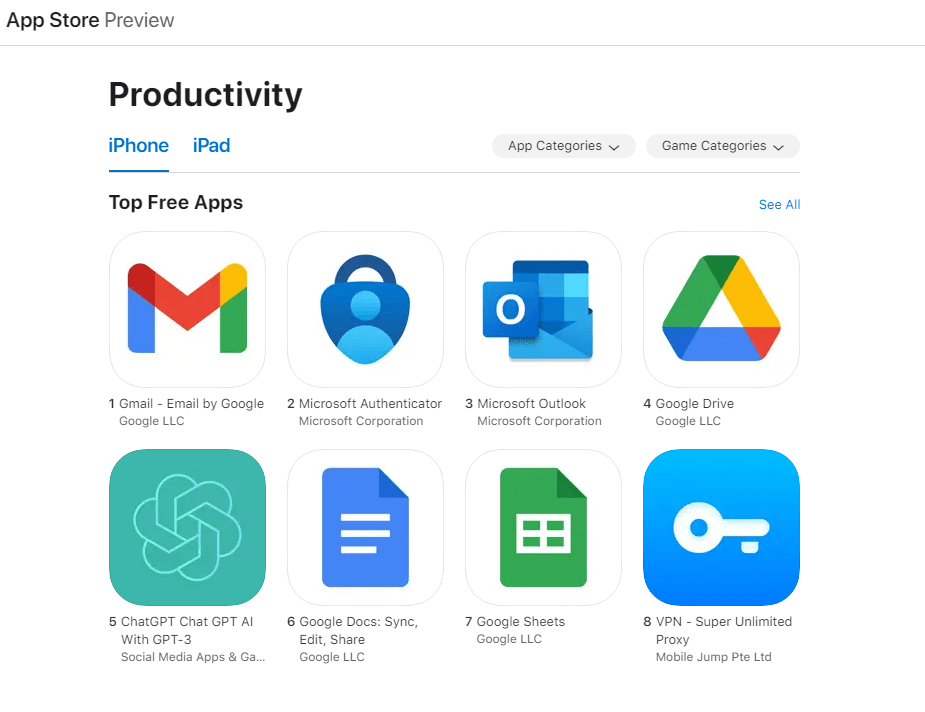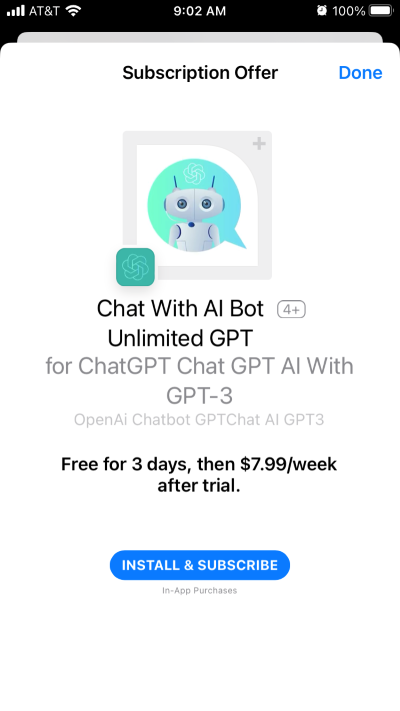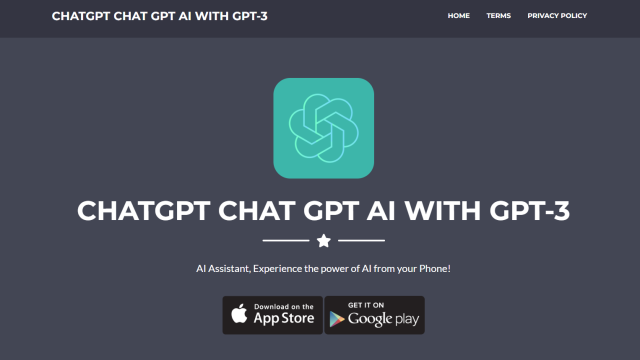The internet’s hottest new thing is ChatGPT. For weeks now, the AI tool has gripped the online world’s attention. Media outlets and tech analysts have predicted the platform, or others like it, might eventually supplant Google — completely changing how we navigate the web. New York public schools have banned it. Microsoft is reportedly considering a $US10 ($14) billion investment in the startup behind the chatbot.
And whether you think all the hype is warranted or not, at the very least, there’s no charge to check it out. You might have to wait in a bit of a virtual line to access the machine-learning fuelled chatbot, but OpenAI’s text generator is free for anyone to use on the internet. Unless, of course, you opt to sign up for a $US7.99 ($11)/week subscription from an unaffiliated app.
In the cloud of excitement surrounding ChatGPT, some shifty actors have sought to cash in. An avalanche of unverified mobile apps claiming to be ChatGPT have popped up in both the App Store and Play Store, but none are actually associated with OpenAI.
One app, in particular, has managed to climb its way into the top “free” apps in the App Store’s productivity category. As of writing, “ChatGPT Chat GPT AI With GPT-3” was ranked the fifth most popular download, outranking Google Docs. The app uses OpenAI’s logo along with a name clearly intended to maximise search hits.

And though it is free to download, the fake ChatGPT app begins charging a comically high $US7.99 ($11) weekly subscription fee after three days. Or, you could opt to pay a $US49.99 ($69) monthly fee, which is higher than subscribing for four consecutive weeks. Again, all to theoretically access a tool that is 100% free on the internet. The app appears to be an interface through which users can submit prompts to a bot and receive generated text back. However, as noted in a report from MacRumors, results through the app vary widely. Sometimes, the app responds to the prompt well, and sometimes what it spits out is wholly irrelevant, unlike the actual ChatGPT.
OpenAI is apparently working on a ChatGPT-powered iOS app, according to a LinkedIn post from venture capitalist and podcaster, Jason Calacanis — who claims to have been given access to the beta version. But there is no publicly available, official mobile version of ChatGPT yet. For now, if you want to use your smartphone to get AI-generated, human-like responses to your questions without excessive fees, you’ll just have to stick to your web browser, which is available on your smartphone.

A website that links to the App Store prompts visitors to “experience the power of AI from your Phone!,” and offers the chance to “Try our ChatBot GPT now!.” Though, when I tried to type a prompt into the accompanying box once, a pop-up window told me that I had reached the “limit” and needed to download the app.
The “ChatGPT Chat GPT AI With GPT-3″ app currently has a 4.6 rating out of 5, with more than 13,000 ratings — which is probably partially responsible for its continued popularity. However, many of the written reviews hone in on the app’s unreliability, cost, and totally absent support team. Other critiques include that the OpenAI-mimic offers incorrect answers to basic questions (which, to be fair, is also an issue with the real ChatGPT), provides overly brief responses, simply does not work, and sends out a high number of notifications.
Despite the apparent sketchiness, “ChatGPT Chat GPT AI With GPT-3″ has successfully passed the Apple App Store’s review process many times since it first launched three weeks ago, according to MacRumors. A similar app from the same developer in Google’s Play Store, on the other hand, has been removed, as first reported by TechCrunch. Before the Play Store version was taken down, it surpassed 100,000 downloads.
Gizmodo reached out to both Apple and Google for more information about how the companies are managing these mock-ChatGPT apps, but didn’t immediately hear back.
